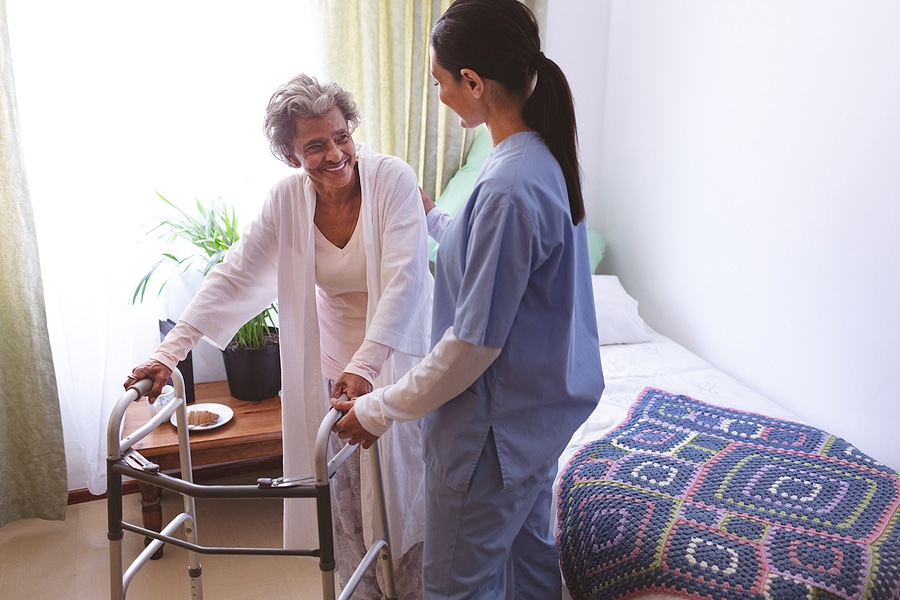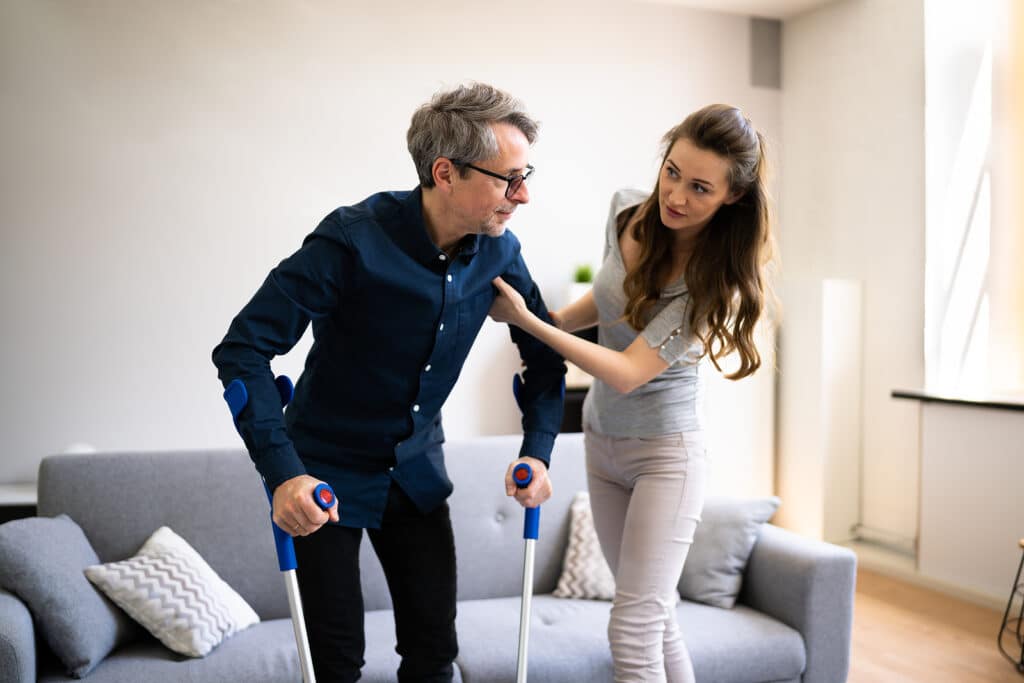If you or your loved one have ALS or Parkinson’s disease, you may need a little extra help at home. What does it mean to get Parkinson’s or ALS care at home? What types of services are included? How long can a person with a degenerative mobility disease live at home? How do you know if your loved one needs mobility care at home?
Here’s what you need to know about ALS and Parkinson’s care at home.
ALS stands for amyotrophic lateral sclerosis, which is a progressive neurodegenerative disease that affects nerve cells in the spinal cord and brain. According to the ALS Association [1]:
“A-myo-trophic comes from the Greek language. ‘A’ means no. ‘Myo’ refers to muscle, and ‘Trophic’ means nourishment – ‘No muscle nourishment.’ When a muscle has no nourishment, it ‘atrophies’ or wastes away. ‘Lateral’ identifies the areas in a person's spinal cord where portions of the nerve cells that signal and control the muscles are located. As this area degenerates, it leads to scarring or hardening (‘sclerosis’) in the region.”
“Parkinson's disease symptoms worsen as your condition progresses over time. Although Parkinson's disease can't be cured, medications might significantly improve your symptoms.”
3 million people per year are treated in emergency rooms for fall injuries, and at least 300,000 older people are hospitalized for hip fractures [3]. People with mobility problems are at even higher risk for falls than other senior citizens, so helping them has a lot to do with preventing falls. ALS and Parkinson’s care at home includes assistance with walking or using a wheelchair to help prevent falls.
Additionally, certain home modifications can help people with mobility problems, such as:

Parkinson’s and ALS care at home involves helping individuals with personal care activities that have become difficult or impossible for the patient to do independently due to mobility issues caused by their disease.
-Indications that your loved one needs mobility care at home can happen so gradually that you almost don’t notice unless you’re looking for the signs.
Examples of ALS and Parkinson’s care at home include:
You have questions and we have answers, contact us today and one of our Vital Sign Home Care staff members will contact you shortly.

Indications that your loved one needs mobility care at home can happen so gradually that you almost don’t notice unless you’re looking for the signs. Here are some red flags to look out for that indicate that your loved one is ready for in-home care [5]:
We love hearing what others say about our medical and non-medical home care services. View our testimonials and find out why your family should use our services.
How can you be sure you find the right mobility care at home? Get answers to as many of these questions as you can [6]:
Need help finding the right ALS or Parkinson’s care at home? Contact us today.
Each agency is unique in its own way. At Vital Sign Home Care, we understand how important it is to plan for care that is person-centered, or in other words, focused on the client’s needs first. As soon as we receive an inquiry about our services, we begin our assessment process. This process involves reviewing personal and medical information that is unique to your loved one’s needs.
This process begins with a:
1. Phone Interview
Our admission coordinator will schedule a time to conduct an initial phone interview to gather as much information about your loved one’s needs as well as the family’s needs. Once this information is gathered, we will then schedule an appointment to meet with one of our RN coordinators to begin the next step.
2. Care Plan Meeting
Our care plan meetings are designed to assess your loved one’s home environment and recommend and plan care based on the information provided. After the care plan meeting, a person-centered plan is developed with the family’s permission. No plan is implemented until the family approves the plan.
3. Caregiver Selection
Our RN coordinator along with our admissions coordinators work together to select caregivers based on the needs and interests of the client and family. This process can be tedious but through. We take into consideration various factors to select the proper caregiver for your loved one. Experience as well as personality is taken into consideration during the selection process with a home visit arranged before the final decision is made.
4. Care Monitoring
Caregivers are required to document (care notes) daily about the day-to-day activities as well as the care provided. Care notes remain on-site at the homes. Our RN monitors the caregivers by doing unscheduled visits.
Our person-centered care process allows our RN coordinators to work closely with our admissions coordinators to select caregivers based on the needs and interests of the client and family. Get Started today!